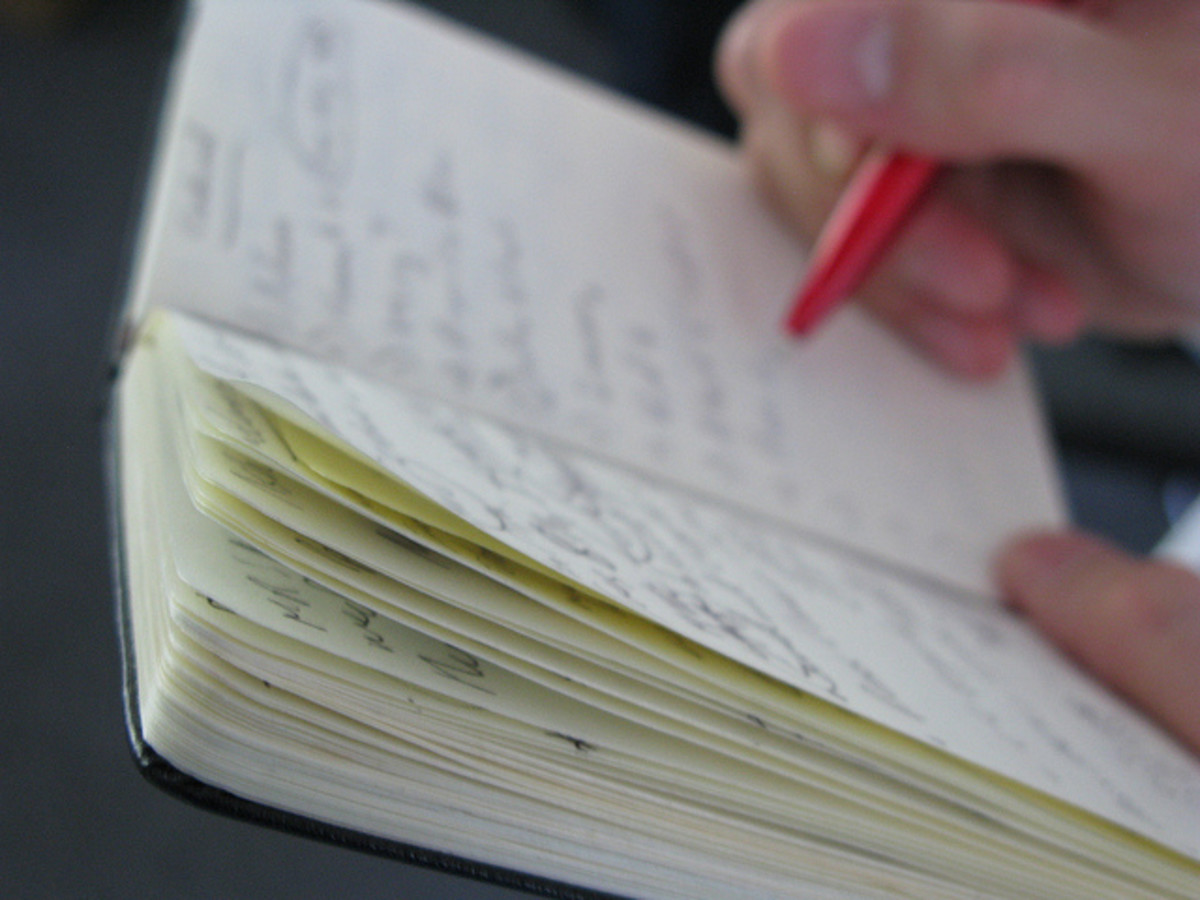Finding Your Fiction: Concise Steps to Writing Successful Fiction - Dialogue and Style

Finding Your Fiction




James Joyce
Dialogue
Increasingly, I have seen the spelling as "dialog," probably because of computers and their use of a "dialog box." While the spelling is technically correct, I find it useful to distinguish between the two. Dialog = computers. Dialogue = written conversation in both fiction and nonfiction.
Also, with the advent of online publishing, and apparent default settings, fiction increasingly is presented in block format with extra space between paragraphs. Unfortunately, if this trend continues, it will deprive writers of essential tools. Space means something. Every word and every space communicates something to the reader. You should manually remove unwanted and unnecessary space.
Why dialogue? Silly of me to ask. Dialogue is essential to plot, character, point of view, style, and tone. Dialogue carries the story forward, informs the reader, and provides a window into the souls of your characters. (See section/chapter on Character.) Even "action thrillers" require dialogue.
Avoid breaking the rules before breaking rules. Before you can begin to write good dialogue, you need to know the mechanics; that is, learn the basic conventions first. Avoid imitating James Joyce or Cormac McCarthy.
Basic Rules of Written Speech
- Use quotation marks.
- A new paragraph is required for every new speaker. (Think Hemingway.)
- Action attributed to a character, before or after the character’s words, belongs in the same paragraph.
Types of Speech
Direct
"Bill, I wish you would leave me alone."
"Bill, leave me alone."
"Bill, you moron, leave me alone."
Indirect
Jenny told Bill she wished he would leave her alone.
Jenny told Bill to leave her alone.
Jenny called Bill a moron and told him to leave her alone.
Interior
I wish you would leave me alone, Jenny thought.
Leave me alone, Jenny thought.
You moron, Jenny thought, leave me alone.
Attributive Verbs
Note the new paragraph for each new speaker.
"Will you go out with me?" Jack asked.
"Well…" Jill hesitated.
"We could go for a meal," he suggested.
"I’m on a diet," she lied.
"How about a drink then?" he tired.
"Jack," she growled.
"Yes," he cried.
"Leave me alone!" she snapped.
Obviously, using too many attributive verbs becomes stupid. You can easily rely on "he said" and "she said" as markers identifying your speaker. "Said" is so common that readers tend to overlook it, often viewing it like punctuation.
Supporting Your Dialogue
Dialogue rarely stands alone. When it does, it’s not for long. Plays require stage direction. Movies are overwhelmingly visual and of course also include music.
"I love you," he said while pouring his coffee.
"Really?"
"Yes." He really did love her.
---------
"I love you," he said while pouring his coffee.
"Really?"
He set the coffeepot down and held her gaze for a moment. "Yes," he said.
---------
"I love you," Jack said, glancing at her, pouring his coffee, opening the refrigerator door, and reaching for the organic nonfat milk.
"No you don’t," she responded.
Jack watched his milk swirl into the black coffee. "You’re wrong again,’ he said. "Of course I do."
Note
Please buy your complete Finding Your Fiction guide available on all e-readers from Smashwords and Amazon for only 99 cents.
List of Dialogue Mechanics
While the following dialogue mechanics list is probably not exhaustive, it may feel like it. However, it does show variation in placement of attributive verbs, commas, dashes, dialogue support, and so on.
Jack said, "She likes men."
"She likes men," said Jack.
"She likes men," he said.
"She likes men," he said excitedly.
"He likes men," he said with a shrug.
"She likes men," he said, smiling condescendingly.
"She likes men," Jack said. "She used to date George."
"He likes women, and that’s what I love about him," said Jack.
"She likes men," said Jack, "and that’s what I love about her."
"Since she likes men," said Jack, "I thought she might like the hockey game."
"She likes women." Jack shrugged. "I guess I was wrong about her."
"Does she like men?" Jack asked.
"She likes men!" Jack shouted.
"She likes men," Jack mumbled/ murmured/snarled/snapped/bellowed/ etc.
"She likes hockey" — he turned aside and coughed up some blood — "but I don’t."
"She likes hockey — at least that’s what she told me — but I don’t," said Jack.
"She likes hockey, but I—" He lurched forward, the hockey stick hitting him squarely across his jaw.
"She likes hockey, but I . . . I don’t know . . . I think it’s a questionable sport at best."
"She likes hockey, but I . . ." His voice trailed off and he seemed lost in thought.
Activities:
Good dialogue gives the impression of real speech, not the actual conversation (paraphrased from Nigel Watts). The following activities (derived from Watts) are designed to show the difference between actual speech and dialogue, and have been popular in my workshops.
Tape record two people getting to know each other. After a few minutes, stop and write down the conversation word for word. Rewrite the conversation.
Tape record two people discussing a third person. After a few minutes, stop and write down the conversation word for word. Rewrite the conversation.
Role-play a scene in which Character A and Character B convince his significant other to help him steal his brother’s brand new mahogany desk and put it in his front lawn.
Role-play a scene in which Character A and B discuss why A should break up/divorce his/her boyfriend/girlfriend, or wife/husband.

Where the River Splits
Use of Dialogue -- Example
The following example is from my novel Where the River Splits. I try to explain my choice of attributive verbs, types of speech, and dialogue support. Of course, as I take this passage out of context, I immediately think I’ve failed miserably, forgetting that novels are the sum of their parts and what comes before obviously sets up each passage and what comes after. (On the other hand, truly great writing can seem poetic even out of context, and mine doesn’t quite get there.) My inclusion of it here could be a sign of laziness, but I prefer to think of it as efficiency. I remember, more or less, what I was thinking when I chose each word. Trying to do that for someone else’s writing, while not impossible, would be difficult.
They found an opening in the forest and even though the sun was well above the horizon, David steered them to shore. "This might be the best spot for miles," he reasoned. (I used the attributive verb "reasoned" because I wanted to emphasize David’s character as someone who thought himself reasonable but who acts to the contrary later.)
"You would know," she said.
David looked at her, unsure if she was being sarcastic again. (This sort of "interior speech" shows that their relationship has problems, that is, he cannot simply ask her if she is being sarcastic.) "How would I know? I’ve never been here before, have you?" (The tone is accusatory.)
"What I meant was, you have the map. That’s all." (No need for an attributive verb, as it is obvious who is speaking, and the tone reveals Susan’s generally non-confrontational attitude at this early stage in her character development.)
"Right," he said, remembering a time when their conversation showed nothing but admiration for one another, when camping meant making love in the open air and falling asleep in each other’s arms. Now they were ready to argue about maps; he loved maps and their possibilities, but Susan showed only moderate interest. (Interior dialogue reveals David’s longing for the past, contrasting it with their present state, and providing important information about both their characters that will affect the plot.)
Finding Your Fiction
Style
"The most essential gift for a good writer is a built-in, shock-proof, shit detector. This is the writer's radar and all great writers have had it." -- Hemingway
Style or "voice" is probably the most common excuse for bad writing. Perhaps you can hear yourself or friend saying the following:
"But you’re supposed to have your own unique voice."
"I like long descriptive passages; after all, Dickens did it."
"That’s just who I am."
To an extent, these defenses are true. However, just as a speech teacher wants you to practice your delivery, so to in writing. Practicing your writing can help discipline your speech. If your voice is laden with unnecessary words, readers will skim and lose focus. While the following passage might be your speaking voice and grammatically correct, it will fatigue readers.
"You know, I believe that the way a tall building puts its shadows on the streets, especially in mighty big cities like say, New York, well, that means that we live in an overpopulated world and like, you will see that in my characters, you know, because they are like sad all the time."
If you use "you know" or "like" while telling a joke or relating a funny story at a cocktail party, you risk ruining it, your audience escaping to get another drink If vernacular is essential to your character, it needs to become part of a compelling narrative. Writing compelling narrative using dialect is difficult. It must be done consciously. Know the "rules" before you break them. Obviously, Twain knew the conventions of writing before he wrote Huck Finn.
Adverbs, Adjectives, and Abstract Nouns
Writing guides often implore you to avoid adverbs, adjectives, and abstract nouns. Use them only if (adverb alert) absolutely necessary. Or should I write, "Use them only if necessary"? Is the use of "absolutely" necessary? You decide. Sometimes it isn’t easy, is it?
Adjectives can weigh down your prose. For example, the weary, dirty, and disheveled soldiers shoved the painted red, pink, and blue heavy steel cannonball into the big broken barrel of the wrecked Frigate ship caught on the wide long sandbar.
Abstract nouns often cause you to "tell" when you should "show." He became anxious because she was so confident and he adored her. He was amazed first, but then got angry. She turned away in contempt, and then became amused at his surprise. She felt contentment flow over her and was happy that she was leaving.
If you made it through the examples without skimming, congratulations. I wrote them but I have trouble reading them. Omit adjectives, adverbs and abstract nouns. Allow only those you can justify.
Imagery: metaphor and simile
After you’ve omitted your adjectives, adverbs, and abstract nouns, you may feel that your concrete prose doesn’t measure up to the complexities of the situation. You may need to use imagery.
"He opened the trunk and found a blanket that smelled like gasoline." Clearly, this conveys more than writing that the blanket smelled bad, bitter, sharp, or acrid.
From the same story, "Hazards of Bat Guano," I use simile for a slightly more complex sensation, "Carla stared at him in a way that made him feel like a grade-school student."
And from the Pushcart nominated story "The Wells Creek Route" -- "The decade was closing like the doors to a weeklong party, a youthful endorphin dance into adulthood."
Metaphors are of course similes without "like" or "as." My favorite comes from Faulkner’s As I Lay Dying. "My mother is a fish."
Be careful of overdoing both simile and metaphor. They can divert the reader. Had I elaborated on how my character felt as a grade school student, the story would have veered from a stream into a classroom.
Qualifiers: often, almost, quite, rather, very, little, pretty
Unless you are creating a quite pretentious character, or you are a little pretentious yourself, you would be pretty wise to avoid these rather antiquated, often misused, and almost useless qualifiers. If you do use them, you should have a very good reason.
Is it better to omit "very" and write, "You should have a good reason"?
Or perhaps I should cut more. "You should have a reason."
Or "You should have reason." No, that changes the meaning.
The process can be maddening. So, after agonizing over every qualifier, move on. Return to your natural voice.
Familiar, Short, and Single Words
Don’t use a twenty-dollar word when a five-dollar word works just as well. Only use the expensive word when it clearly works better. If you are pondering a situation, make sure you’re not merely thinking. For example, Jack pondered about Sally’s lipstick. If your character is hiking through deep snow, don’t write that she is proceeding through the snow. (Unless it’s dialogue and your character is an officious cop.)
When Sally hopped in her car, got out onto the road and steered the entire way to Jack’s house, she drove to Jack’s house.
Activity: Revise the following passage, omitting unnecessary adjectives, adverbs, abstract nouns, qualifiers, and big words. Add a simile or a metaphor or both.
"Full of apprehension, Alice wordlessly proceeded over to him, and became breathlessly excited. She puffed softly and almost soundlessly on his big, bulging, and tanned neck. But Jack stood, feeling pretty tired, gazing firmly at the broken vase, pondering very ominously and rather sadly about her overly anxious demeanor. She quietly stood just a little over him, quite close, but still apprehensive, perhaps worrying too much and beginning to get the feeling that quite possibly he might not reciprocate her emotion."









